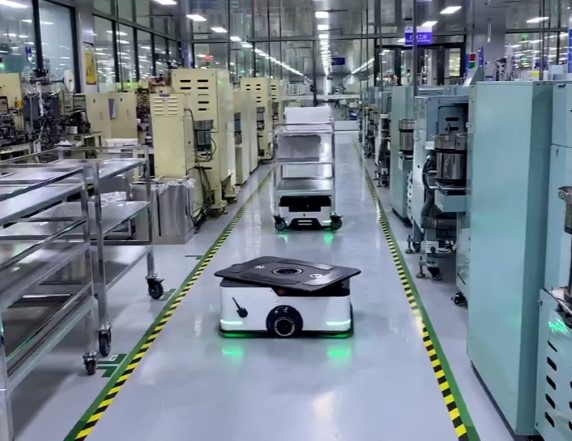© © 2025 Copyright © Youibot Robotics Co., Ltd. All rights reserved.SitemapPrivacy Policy
The integration of Autonomous Mobile Robots (AMR) in warehousing and logistics operations marks a significant shift in material handling and supply chain management methods for enterprises. These innovative machines aim to automate the transportation of goods in warehouses, committing to improving efficiency, reducing operating costs, and improving workplace safety. This article explores how AMR can thoroughly reform warehousing and logistics, with a focus on their impact on efficiency and productivity.

AMR is a self navigation robot equipped with advanced sensors and software that can safely understand and move through their environment. Unlike traditional Automatic Guided Vehicles (AGVs) that run along a fixed path, AMR can dynamically navigate warehouses, avoid obstacles, and optimize routes in real-time. This flexibility makes them particularly valuable in fast-paced, constantly changing warehousing and logistics environments.
AMR significantly contributes to workplace safety by taking over tasks with high physical requirements and potential hazards. Equipped with advanced sensors, they can safely avoid personnel and obstacles, reducing the risk of workplace accidents. In addition, by handling repetitive and laborious tasks, AMR helps prevent injuries caused by overwork and repetitive actions among warehouse employees.
Technological progress is a key factor driving the expansion of AMR efficiency and application scope. The integration of machine learning and artificial intelligence (AI) enables AMR to better understand its operating environment, improve navigation accuracy, and make real-time decisions. These technological advancements not only enhance the independent operational capabilities of AMR, but also enhance their collaborative work ability with human workers, ensuring seamless and efficient workflows.
In addition to traditional warehousing and logistics applications, AMR is expanding into new fields such as retail, healthcare, and manufacturing. In the retail industry, AMR is used for inventory management and customer service, improving inventory accuracy and customer satisfaction. In the healthcare industry, AMR supports the distribution of drugs and medical supplies, improving the operational efficiency of hospitals. In the manufacturing industry, AMR can handle materials and transport finished products on the production line, improving production efficiency and flexibility.
By comprehensively utilizing advanced technology, optimizing workflow, and adopting sustainable practices, autonomous mobile robots are shaping the future of the warehousing and logistics industry, providing enterprises with key tools to improve efficiency, enhance competitiveness, and achieve long-term growth. With further research and application of these robot technologies, we will witness the arrival of a more automated, efficient, and intelligent supply chain management era. Autonomous mobile robots not only represent the pinnacle of technological progress, but also demonstrate how to reform traditional industries through intelligence, open up innovative working methods and value-added opportunities.
By continuing to use the site you agree to our privacy policy Terms and Conditions.